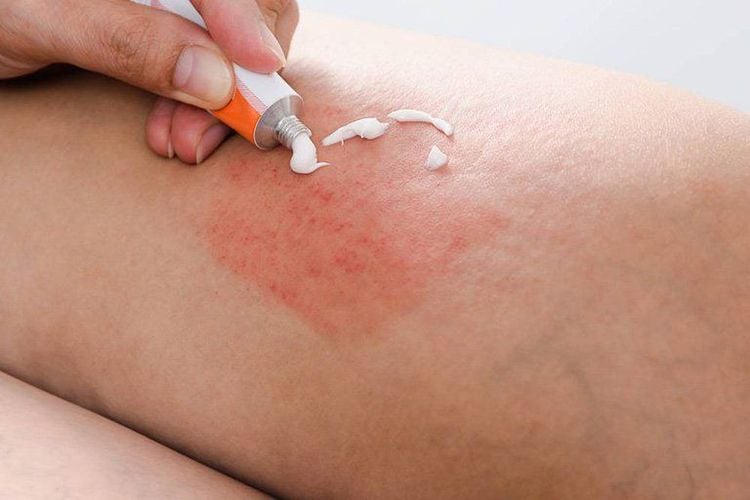Cetrimide belongs to a group of medicines called “antiseptics” that is often prescribed by doctors for disinfecting wounds in traffic accidents or topical application on wounds, scratches, and minor burns. Using Cetrimide properly will help your wounds heal quickly and avoid dangerous infections that may occur.
1. What is Cetrimide?
- Drug class: antiseptic, antifungal for topical use
- Drug name: Cetrimide
- Ingredients: cetrimide and sufficient excipients
- Drug form and content: 0.1-1% aqueous solution, 0.5% topical cream
2. What is Cetrimideused for?
Cetrimide belongs to the group of medicines called antiseptics, a mixture of many different quaternary ammonium salts.
Cetrimide in the form of 1-3% solution is the best antiseptic for cleaning wounds, especially traffic accident wounds. Cetrimide in the form of an antiseptic cream is often prescribed to treat minor burns, minor scalds, minor wounds, and minor abrasions.

3. Dosage and how to use Cetrimide
Dosage of Cetrimide for adults:
- For external wounds, apply 0.1-1% aqueous solution or 0.5% cream to the affected skin area.
- For external use in cases of seborrheic dermatitis: Apply 10% shampoo solution to the scalp
Dosage of Cetrimide for children: The safety and effectiveness of Cetrimide for children under 18 years of age have not been determined. Therefore, you should consult with your doctor before using Cetrimide for children.
How to use Cetrimide:
- Clean your hands thoroughly before applying the medicine to the wounds
- Clean the wound surface if necessary
- Apply a thin layer of medicine to the affected skin area
- Continue using the medicine until the wound improves.
4. Precautions when using Cetrimide
People using Cetrimide should note the following issues to avoid using the drug incorrectly, leading to unwanted effects:
- Pregnant women should not use Cetrimide, especially in 1st trimester pregnancy because of the risk of miscarriage, birth defects, fetal malformations, etc. If in case of having to use the drug, you should consult with the doctor before using
- Breast-feeding women should also not use the drug because the drug can be passed from breast milk to the baby.

- Store the drug at room temperature, avoid humid places and places with direct sunlight, keep the drug out of reach of children and pets
- Avoid contact with the cream with the eyes, if it does, wash thoroughly with water several times.
- If you accidentally take the drug, you should immediately go to the nearest medical facility or hospital for treatment
- Cetrimide can interact with some drugs, changing the ability to work or increasing the effects of side effects. Therefore, you should bring a list of prescription or non-prescription drugs you are using to consult with your doctor
- Absolutely do not use this medicine after expiry day because the properties of the drug will change, affecting the health of the user
5. Side effects of Cetrimide
Some following side effects that you will experience while using Cetrimide are:
- Nausea or vomiting, esophageal necrosis
- Hemolysis in the veins or uterus
- Rarely occurs burning on the skin
When taking an overdose or experiencing unwanted effects of the drug, you should notify your doctor or go to the nearest medical facility immediately for appropriate diagnosis and treatment.







